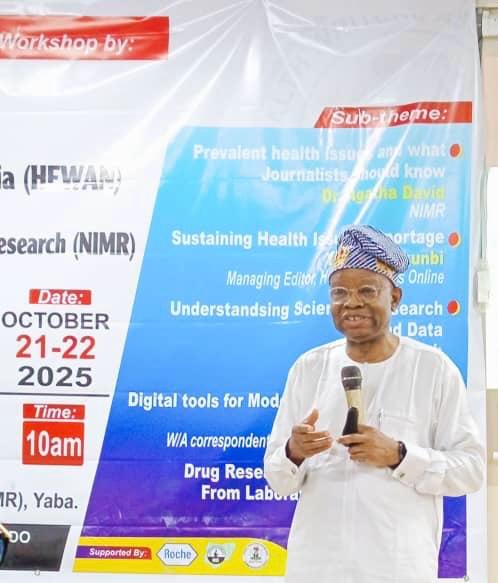By Chioma Obinna
As Nigeria continues to depend heavily on imported drugs, a pharmaceutical expert has warned that unless bold reforms are made, the country will remain a consumer of medicines developed elsewhere.
Every pill, vaccine, or injection that saves a life begins its journey in a laboratory – a place where curiosity meets compassion and science meets struggle. In Nigeria, that journey is often slowed by politics, underfunding, and weak innovation systems.
Speaking in Lagos, leadership educator and advocate for pharmaceutical innovation in Africa, Prof. Lere Baale, said the odds of turning a laboratory discovery into a usable drug are extremely steep.
“Only one in every 10,000 compounds discovered in the lab ever makes it to human trials,” Baale said. “That means 9,999 failures for every success – but each failure teaches us something that serves humanity.”
He explained that for Nigeria to break free from decades of dependency on imported medicines, it must invest in homegrown research and development and build stronger scientific institutions.
Baale noted that drug development is a long and costly process. Scientists typically screen thousands of molecules using artificial intelligence, computational modeling, and high-throughput screening. Only a few survive preclinical testing on cells and animals.
“The attrition rate is high,” he said. “But each failure sharpens the science.”
When a compound shows promise, it progresses to human trials – conducted in three phases: safety (Phase I), efficacy (Phase II), and large-scale validation (Phase III). The process can take 10 to 15 years and cost over $2 billion.
According to the World Health Organization (WHO), less than 3 percent of global clinical trials take place in Africa, even though the continent bears more than a quarter of the world’s disease burden. This, the agency warns, limits evidence generation and slows access to locally relevant treatments.
Baale stressed that the challenge is not only scientific but also political and moral.
“Institutions like the Nigerian Academy of Pharmacy and the National Institute for Pharmaceutical Research and Development (NIPRD) must lead in establishing African Centres for Clinical Excellence,” he said. “If we don’t conduct trials here, our disease patterns and genetics will never be represented in global research.”
He welcomed the creation of the African Medicines Agency (AMA), which seeks to harmonize drug regulation across the continent, saying regulatory systems should both protect public health and encourage innovation.
“That balance is critical to achieving medicine security and self-reliance,” Baale said.
Recalling Africa’s experience in the 1970s when unapproved drugs entered local markets under the guise of aid, Baale said quality assurance remains a challenge for local manufacturers today.
“Chemical equivalence means a generic drug has the same active ingredient as the original,” he explained, “but bioequivalence means it performs the same way in the body. Without bioequivalence testing, patient trust erodes and safety is compromised.”
Baale highlighted how artificial intelligence (AI) and genomics are transforming drug discovery globally, offering opportunities for developing nations to catch up.
“AI can predict how molecules behave, optimise trial design, and simulate long-term outcomes,” he said. “These tools can shorten discovery time and reduce costs – but they must be matched with investment in infrastructure, data systems, and collaboration between universities, government, and industry.”
Ultimately, Baale framed drug development not merely as a scientific challenge but as a moral mission.
“Drug development is a moral pursuit,” he said. “Every capsule or tablet embodies the intelligence of scientists, the courage of volunteers, and the compassion of caregivers. It’s about transforming science into service.”
The post From lab to life: How Nigeria can turn science into lifesaving medicines — Prof Lere Baale appeared first on Vanguard News.

